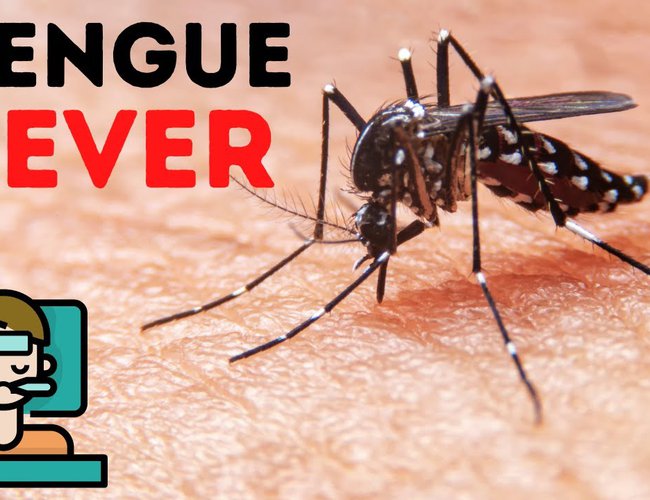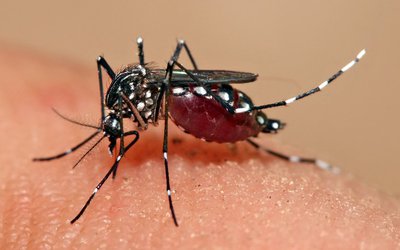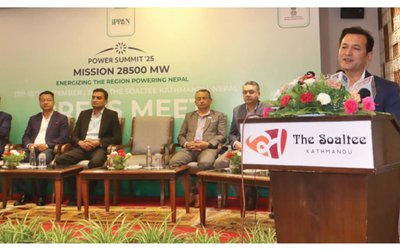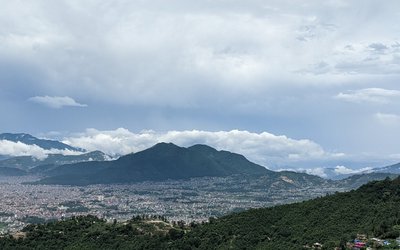
Epidemiology and Disease Control Division (EDCD) under the Ministry of Health and Population (MoHP) reportd that more than 16,500 dengue cases have been detected across Nepal.
According to a report of The Rising Nepal, Bagmati Province reported 12, cases followed by 2,422 in Lumbini Province, as of Sunday. The paper reports that 20 people have died.
The caseload of dengue has been widespread across Nepal Reports The Rising Nepal.
Among the people who died of dengue, 12 are male and eight female and around 70 per cent of them are aged below 40, said Dr. Gokarna Dahal, the chief of the Vector Control Section at the EDCD.
The dengue cases have been increasing alarmingly and the EDCD had already forwarded a proposal to the MoHP to declare dengue an epidemic, said Dr. Dahal and added that the ministry was working on it.
As dengue has been recorded in 75 districts throughout the nation, if declared an epidemic, would be helpful for coordination on taking measures to prevent the spread of the virus, said Dr. Dahal.
Dengue is also called ‘break-bone fever’ and the patients show the symptoms 3-7 days after the mosquito bite, and the high fever usually lasts up to a week, and it leaves the patients weak for up to a month.
As there is no treatment for dengue, doctors recommend paracetamol to ease pains and to bring down temperature, and plenty of fluids. More severe cases of dengue can result in internal haemorrhage and may require hospitalisation.
Dengue is caused by a virus of the Flaviviridae family and there are four distinct, but closely related, serotypes of the virus that cause dengue (DENV-1, DENV-2, DENV-3 and DENV-4).
According to the World Health Organisation (WHO), recovery from infection is believed to provide lifelong immunity against that serotype. However, cross-immunity to the other serotypes after recovery is only partial, and temporary. Subsequent infections by other serotypes increase the risk of developing severe dengue.
Dengue-infected people with one serotype of the virus will not have immunity to the other three types and multiple infections could occur in same person, said Dr. Sher Bahadur Pun, head of the Clinical Research Unit at the Shukraraj Tropical and Infectious Disease Hospital.
It is very important to find out the serotype of dengue to find the severity of the disease, said Dr. Pun.
“Knowing the serotype of dengue is needed for patients, care providers and policy makers to be aware about the severity of disease, manage the disease and its burden,” added Dr. Pun.
If a person is infected second time with a different serotype of dengue virus, there is a high chance of developing severe dengue known as ‘dengue haemorrhagic fever, and ‘dengue shock syndrome’, warned Dr. Pun.
Dengue is a rapidly emerging disease. Endemic across most provinces, dengue incidence has increased in recent years largely due to expansion of the vector Aedes aegypti and Aedes albopictus, as well as the movement of people and the introduction of imported cases, according to the EDCD.
As per the study carried out by EDCD on 2019, all four dengue serotypes exist in Nepal, with DENV-1 and 2 historically contributing the highest burden.
The first case of dengue in Nepal was reported in 2004. Since then, dengue cases have been gradually reported in Nepal. In 2019, there was an outbreak in Nepal with a total of 17,992 reported dengue cases from 68 districts, comprising all seven provinces. There were six deaths reported from five districts, two deaths in Chitwan, and one each death in Sunsari, Sindhupalchowk, Kathmandu and Doti in 2019.
- Putin-Trump call after US halts some arms shipments to Ukraine
- Jul 04, 2025
- USAID programs officially suspended
- Jul 03, 2025
- Thailand’s Constitutional Court suspended PM Paetongtarn Shinawatra
- Jul 02, 2025
- Trump says Israel ‘agreed to necessary conditions to finalize’ 60-day Gaza ceasefire
- Jul 02, 2025
- US Senate passes Trump's massive tax bill
- Jul 02, 2025















